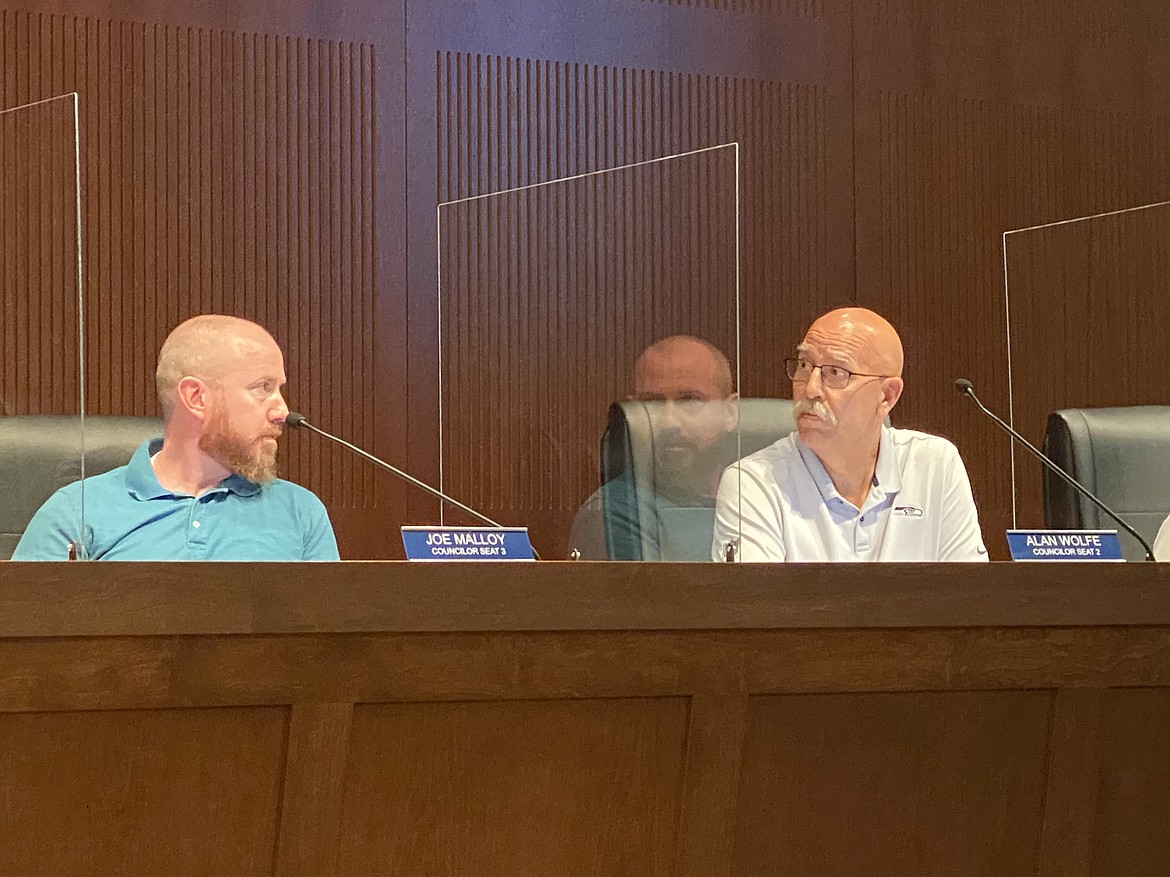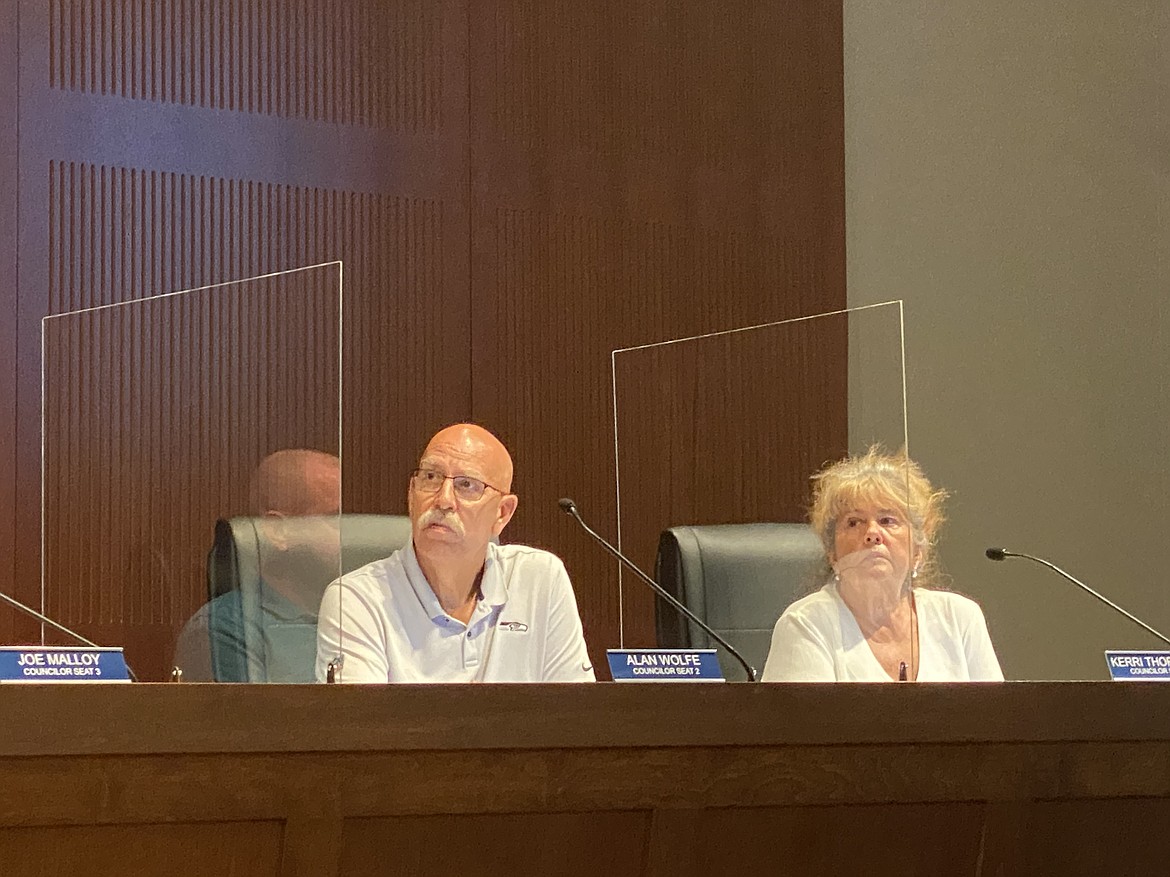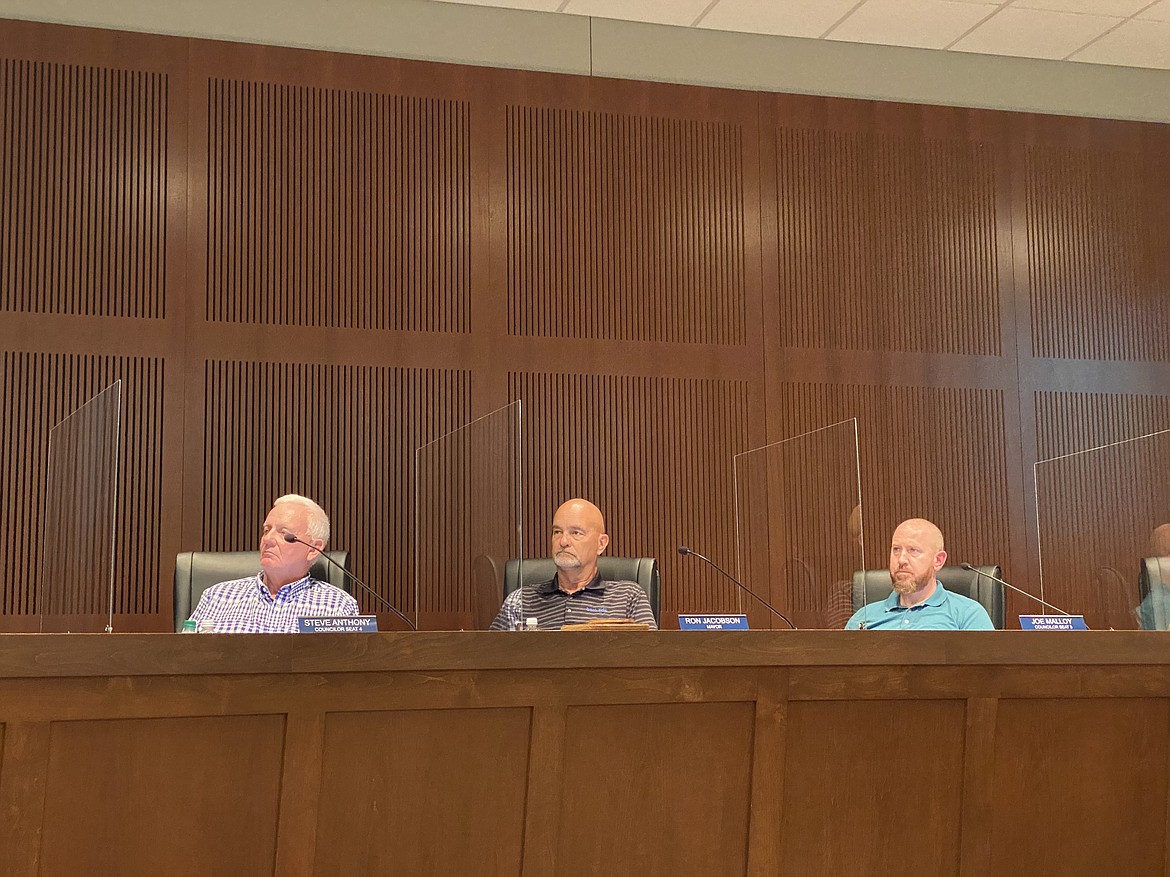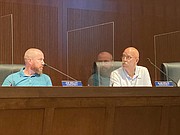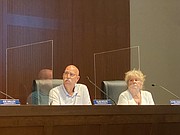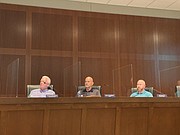Following the paper trail
Post Falls adds name to list of Idaho municipalities unsure of Gov. Little’s CARES Act program
In anticipation of passing the fiscal year 2021 budget, Post Falls City Council voted on new fee increases, the forgone balance, and CARES Act grant funding on Tuesday night.
During the public hearing, Post Falls city finance director Jason Faulkner broke down the six fee increases that will affect residents this upcoming year. These increases include water rates by 3%, wastewater rates by 7%, reclaimed water capitalization fees by 8.06%, water capitalization fees by 4.62%, impact fees by 1.64%, and sanitation fees by 1.5%.
“Year after year we’ve talked about what that looks like for the average homeowner, if you use 5,000 gallons in the fiscal year 2020 the monthly bill will be $85.45,” “In fiscal year 21 with the proposed fee increases, the monthly bill is $90.15 For a total change of $4.70 total.”
Councilman Alan Wolfe said the 1.64% increase in impact fees was surprisingly low after previous conversations by the council about dramatically changing their rate. Faulkner, who is in the process of running an impact fee study, said there will be a more realistic fee change after further public hearings are held.
“I had anticipated we’d have the impact fees available so I could put them in this resolution but they’ve had a hold up with the public hearings regarding impact fees,” Faulkner said. “Those will probably be available around October, so you’ll see me come back with new impact fees after they’ve been revised.”
Continuing Post Falls’ 12-year tradition for not increasing property taxes, Faulkner proposed the 2021 forgone property tax resolution that would reserve the extra $356,247 for later use.
In past years, cities have had to create a resolution if they intended to use their forgone balance, otherwise, it would automatically be directed into the forgone balance. Now, Faulkner said, the legislative rule has changed the process to where cities want to roll their unused 3% property tax revenue into the saved forgone account the cities have to hold a hearing on the resolution.
According to Faulkner, Post Falls’s standing balance in the forgone account is about $1.6 million. Wolfe asked Faulkner why the council should continue to send the tax increases into the forgone when the city has no intent on taking forgone taxes.
“Why do we need to roll over another $356,000?” Wolfe asked. “I can’t even imagine a situation where we would come back to the citizens of Post Falls and say we didn’t take it for 12 years but now we’re going to hit you with it.”
Faulkner and Post Falls city administrator Shelly Enderud posed two different examples for using forgone including the possible repayment of CARES Act grant funding and to substitute new growth. Enderud said that forgone is in its essence a taxing authority that is used by the city in a need situation.
“Right now the state of Idaho is proposing the CARES Act which is for public safety relief or property tax relief which is about $1.6 million,” Faulkner said. “A lot of that money that is offered by the state of Idaho we have received information that if we may have to pay it back, the forgone would be an available funding source for that repayment.”
Mayor Ron Jacobson additionally pointed out that Post Falls has opted into taking part in the forgone balance when replacing streetlights, but it is very unusual.
As part of a statewide debate, Post Falls City Council was tasked with opting to accept federal CARES Act grant dollars to offset COVID-related costs and property taxes. During his public hearing presentation, Faulkner informed the council that Post Falls was approved for a total of $1,194,400 in grant funding, which would be split between the current fiscal year and upcoming year. The current fiscal year would see $747,200 of the CARES Act dollars while 2021 would be budgeted $447,200.
“This fiscal year we are going to use $300,000 for relief we offered employees when the COVID-19 crisis hit and we are also suggesting appropriate $447,200 this year and $447,200 next year,” Faulkner said. “This is going to cover anything we had to purchase for the COVID event.”
Faulkner said the city has already submitted a reimbursement for $50,000 for items such as masks, hand sanitizer, park equipment, and other acceptable items.
Jon Cafferty, Post Falls’s deputy city attorney, additionally presented his update on the CARES Property Tax Relief Program during the meeting. During his presentation, he pointed out to the council that the city had submitted a qualified letter of intent prior to the July 17 deadline, but the legality of the program is still largely unanswered.
“It’s a good thing, it’s a benefit to the public but the problem I perceive is the questions that we asked them before we made the request for the statement of intent have yet to be answered,” Cafferty said. “There is still serious concern on my part as to the legitimacy of the interpretation of the state in the use of these funds.”
Cafferty specifically noted that the federal CARES Act says it can’t be used to substitute taxes, which is what Gov. Little’s program intends to do.
“If the city chooses to go forward based upon the information that has been provided the potential still exists that actions could take place where the city would have to repay those funds back to the federal government,” Cafferty said. “That’s where your forgone money would come into play.”
Jacobson said he finds it interesting that the governor’s property tax relief program intends to do good, but the U.S. Treasury has said the CARES Act is not allowed for taxes.
“The state is trying to promote its use for something that is not allowed,” Jacobson said. “All these questions that have been asked and the interpretation is from the governor’s office is yes it is OK but we’re not going to get a definitive answer from the treasury or the state.”
Bonner County has already ensued a lawsuit on the state of Idaho for the program, Cafferty said, after pointing out the flaws in Gov. Little’s plan to get it declared invalid.
“We are lacking the information and the facts to substantiate why we should use federal taxes instead of local taxes for the benefit of what we put in our budget before,” Cafferty said. “The potential issue, defrauding the federal government by taking their funds and saying you were doing something good is questionable at best.”
With council approval on all three ordinances, the city is one step closer to finalizing the fiscal year 2020-21 budget. Council will revisit its decision in the Sept. 1 meeting, which is also the deadline to opt-in to Idaho’s CARES Act property relief program.


